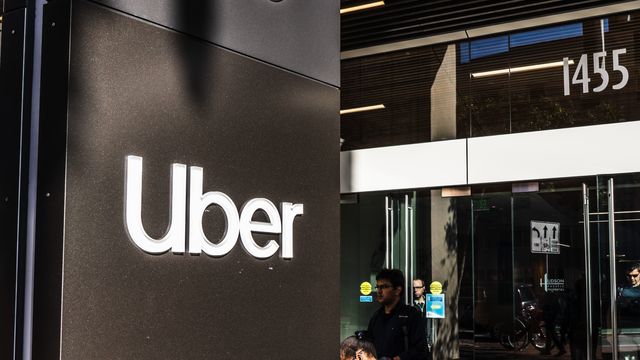
Sundry PhotographyGetty Images
- Uber has been sending letters to all 50 state governors, as well as President-Elect Biden and the CDC, saying its ride and delivery drivers should be considered “essential” when it comes to deciding who gets early access to the COVID-19 vaccine.
- Around 20 million people in the U.S. will likely get the vaccine before the end of the year, with 100 million possible by the end of February.
- Last month, Uber (and Lyft and others) fought against letting these same drivers be considered as actual employees through California’s Proposition 22. That proposition passed with around 58 percent of the vote.
“Essential” could be in the running for 2020’s word of the year, but defining which workers will carry that label from the government is a challenge. Uber is taking the public stand that its drivers should be among the first to have access to COVID-19 vaccines by asking them to be categorized as essential workers.
Now that a vaccine has been approved for use in the U.S., and the first doses are expected to be given this coming week, the fight for who gets it early is starting in earnest. Health-care workers are at the head of the line, but other groups of workers asking to be considered essential so they can also access the vaccine as soon as possible include teachers, meatpackers, and waste workers, according to the Los Angeles Times. It is expected that the first wave of vaccines in the U.S. will cover around 20 million people by the end of the year, with enough doses for 100 million people expected by the end of February 2021.
This content is imported from Twitter. You may be able to find the same content in another format, or you may be able to find more information, at their web site.
Uber made the case for its drivers in letters company CEO Dara Khosrowshahi sent to every governor in the U.S. (and which will also be sent to President-Elect Joe Biden). “Over the last nine months, these workers have been a lifeline to their communities. They have transported health-care workers to hospitals, delivered food to people socially distancing at home, and helped local restaurants stay in business,” the letter said, according to Automotive News.
Uber sent a similar letter to the Centers for Disease Control and Prevention (CDC) last week. That letter, sent by Uber’s head of federal affairs, Danielle Burr, said “early access to a vaccine would help drivers and delivery people continue to play their essential role while also reducing the risk that they may inadvertently contract, or possibly transmit, the virus.”
On Twitter, Khosrowshahi said he was asking the governors of all 50 states and DC to prioritize drivers and delivery people for early access. “These front-line workers should get the vaccine before people like me,” he said.
Lyft Has a Similar Idea
Uber is not the only ride sharing company trying to get its drivers early access to the vaccine. A Lyft spokesperson told Car and Driver it is working on getting its drivers the vaccine but did not share specific details.
“We fought for drivers to be designated as essential workers, and we’re working with policymakers at state and local levels to make sure they have priority access to vaccines,” the spokesperson said. “We will have more to share as states finalize their distribution plans, but we believe Lyft can play a significant role in increasing access to the vaccine.”
Uber has taken public stands before to help its drivers in the face of COVID-19. In March, Khosrowshahi sent a letter to President Trump and members of Congress asking that independent workers who drive for Uber or Uber Eats be allowed to qualify for the same benefits as full-time employees under the coronavirus relief package. The final version of the bill did offer benefits to gig workers.
But Uber doesn’t always think of its workers as essential, at least not essential like an employee. In the lead up to the November election, Uber and Lyft both supported a “yes” vote on Proposition 22, which keeps drivers in the “independent contractor” category instead of letting them become actual employees of the ride-share app companies. The Washington Post characterized Uber’s actions as “sneaky tactics,” but Prop 22 passed with around 58 percent of the vote. They’re essential workers, apparently, not essential employees.
This content is imported from {embed-name}. You may be able to find the same content in another format, or you may be able to find more information, at their web site.
This content is created and maintained by a third party, and imported onto this page to help users provide their email addresses. You may be able to find more information about this and similar content at piano.io
